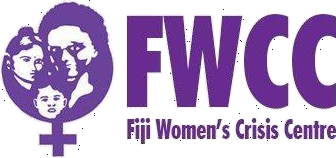In Fiji, the instances of domestic violence related homicides and suicides have reached disturbing new heights. Consider the following cases which were reported by Fiji’s daily newspapers between 1998 and March 1999:
Abhi Manmu, a Labasa man, was charged with attempted murder for chopping off his aunt’s arms (D/P 2/2/98)
Kelera Kacivaki was given a 15 month sentence, suspended for two years, for the manslaughter of her former boyfriend. The initial charge of murder was reduced to manslaughter when the DPP’s Office found evidence of self defence. It was shown that the accused was assaulted and threatened with a knife by the victim several times before the killing. (F/T 1/7/98)
Aseri Talai charged with murder for allegedly knifed his wife to death outside Lautoka Hospital (F/t 8/9/98).
Iliesa Duvuloco was sentenced to life imprisonment for raping and killing his first counsin (F/T 12/9/98).
A Fiji-born man, now living in Canada, was jailed for 20 years for murdering his estranged wife. The judge found that Mohendra Misir had abused his wife both mentally and physically during their marriage, which began in 1990 (F/T 17/11/98)
Rajesh Kumar was jailed for three years for assau1t occasioning grievous bodily harm after knifing his wife several times. (D/P 26/2/98). His appeal was dismissed (F/T 18/7/98).
Mereleini Qadroka was in coma for three weeks after being bashed up by her policeman husband (D/P 28/3/98). Her husband has been charged and is still awaiting trial. Mereleini will be confined to a wheel chair for the rest of her life.
Kim Nam Bae was sentenced to six years imprisonment for the death of his de facto wife (F/T 3/6/98).
David Prasad – initially charged with attempted murder of his wife, charges reduced to assault occasioning grievous bodily harm, was sentenced to three years imprisonment for repeatedly striking his wife with a cane knife (S/P 10/5/98).
Dr Rajeshwar Sharma was sentenced to life imprisonment for the murder of his wife and child (F/T 5/6/98).
Vulikona Bukai was sentenced to 10 years imprisonment for brutally assaulting and cutting off his de facto wife’s ears. Yasmin Bi Ah (18) hanged herself after the assault.
Meena Kumari dies after being systematically starved by her husband – D/P 23/12/98. No charges laid. Meena’s four young children are now living in a children’s home. Their father has complete access to them.
Woman knifed to death by her de facto husband at Nasarowaqa in Bua (D/P 24/12/98). Case pending.
Prabha Wati confesses to killing her husband to end years of domestic abuse (F/T 3/1/99). Case pending.
Makoi woman Sushila Devi dies after being set on fire by her husband, Prem Adiv (F/T 11/1/99). Case pending.
Raj Deo jailed for life for hacking his four month pregnant wife to death with a cane knife.
Thirty-one year old Sabeto woman died in Labasa Hospital after her husband struck her on the back with a weeding knife (S/P 7/3/99). Case pending.
Twenty year old Sangeeta Sen died after brutal assault and hanging. Parents claim her death was not a suicide and that she was subject to severe domestic violence before her death (D/P 18/3/99). Investigation suspended due to lack of evidence.
Ex- Fiji national hacks girl friend to death in San Francisco (F/T 23/3/99).
FWCC statistics between 1997 and 1999 show that six women have died under circumstances which their families have found to be suspicious. Although apparently suicides, the families of these women were convinced that their deaths were not suicides, but domestic violence related homicides, that had been disguised as suicides. Police investigations of these cases have not proceeded due to lack of evidence.
The Fiji Women’s Crisis Centre urges law enforcement agencies to look very thoroughly into so-called “suicide” cases, particularly where there is a history of domestic violence. Too many women are being killed in their homes – and too many killers are walking the streets, completely unaccountable, for their crimes. We also urge government to hasten the law reform process. Fiji n specific legislation on domestic violence if we are to curb the rising tide of domestic violence in this country. Commitments have been made by our government at the International, regional and national levels to address the issue of violence against women. What is being done about it?
